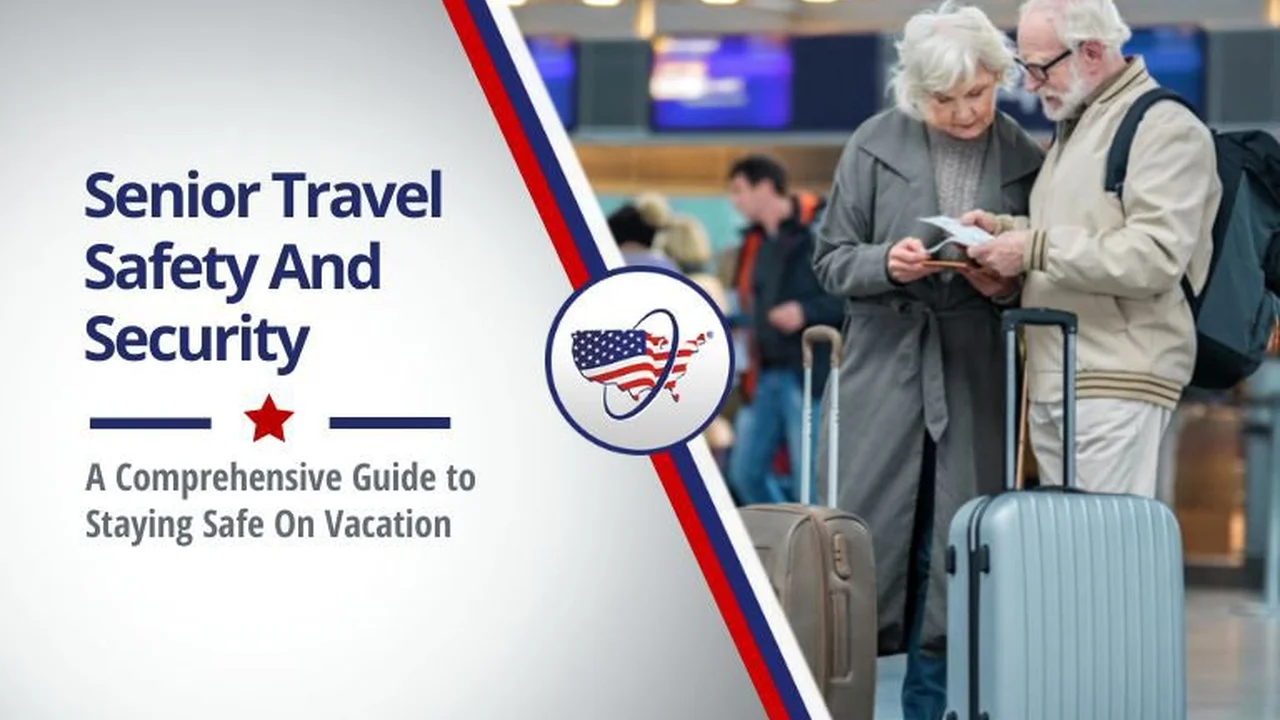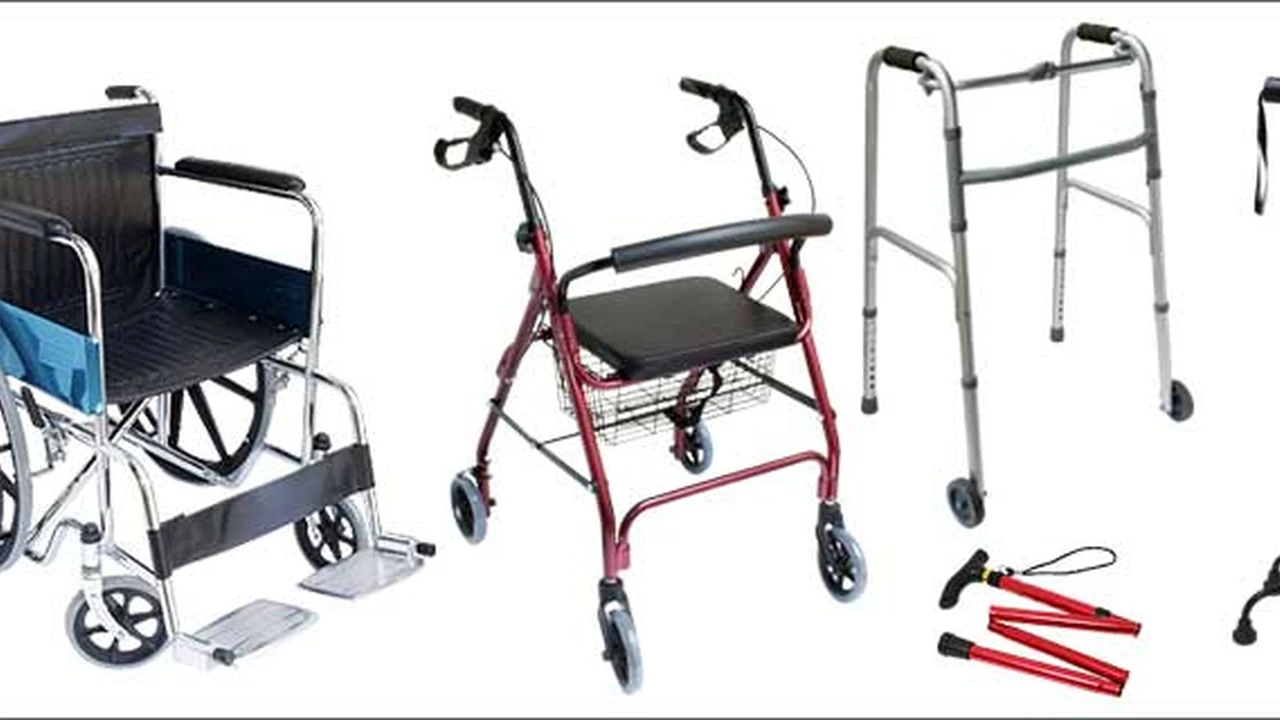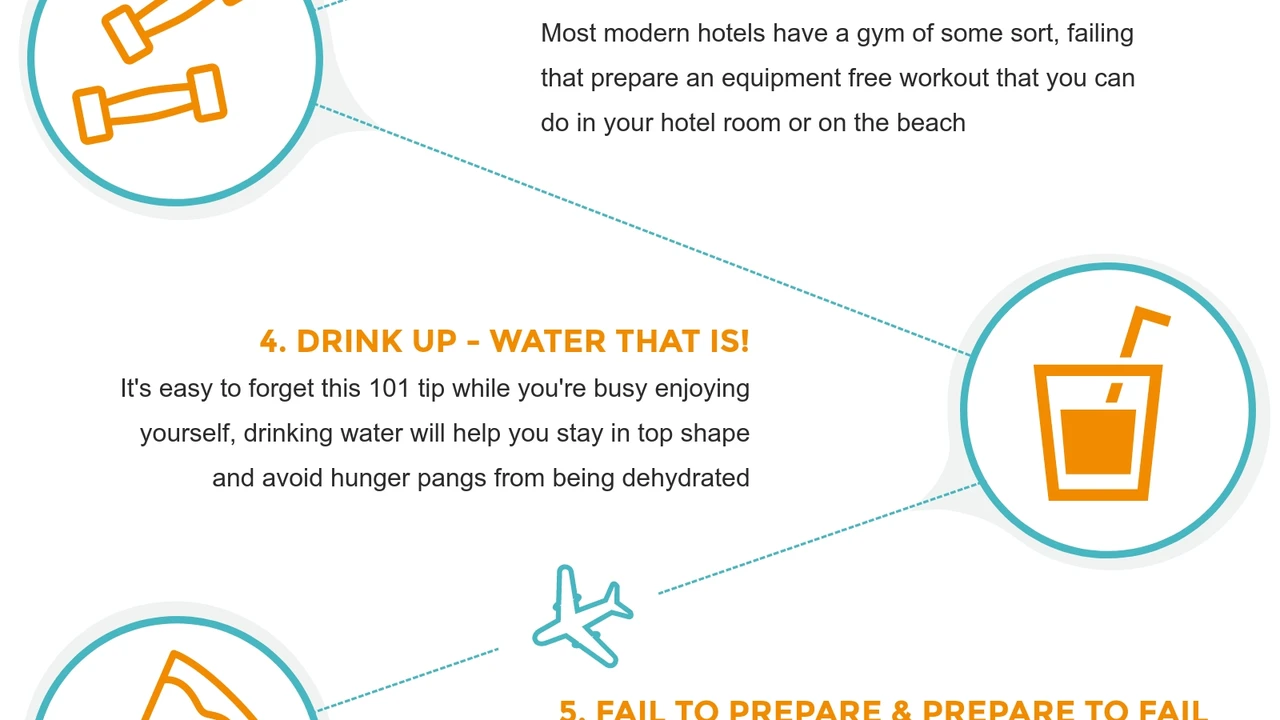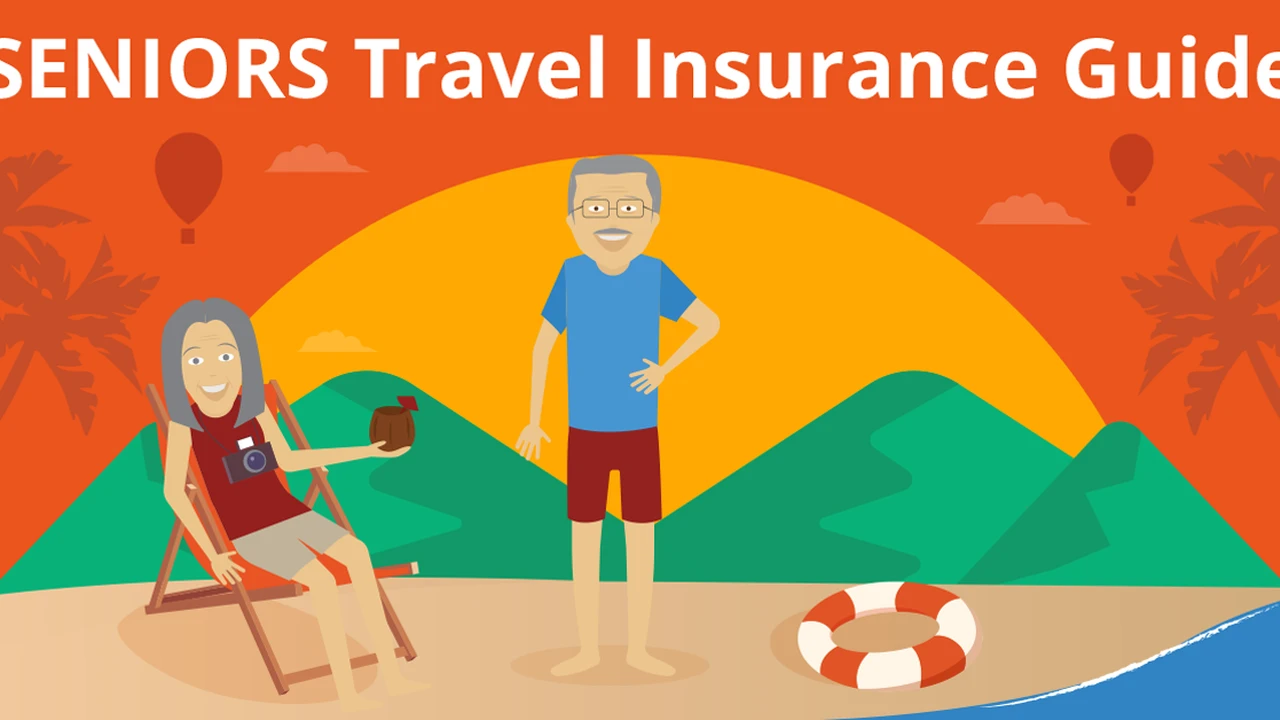Senior Trip Safety Tips for International Travel
Stay safe on your senior trip abroad. Essential safety tips for international travel, including health and security advice.

Senior Trip Safety Tips for International Travel Your Ultimate Guide
So, you're gearing up for that epic senior trip abroad! It's an exciting time, full of anticipation for new adventures, cultures, and memories. But before you pack your bags and hop on that plane, let's talk about something super important: staying safe. International travel, especially for a senior trip, comes with its own set of considerations. We're not here to scare you, but to empower you with the knowledge and tools to have an incredible, worry-free experience. Think of this as your personal 'Senior Trip Guard' handbook for navigating the world safely.
Understanding International Travel Risks for Senior Trip Goers
When you're traveling internationally, the world is your oyster, but it's also a place with different rules, customs, and potential challenges. For senior trip groups, these can range from minor inconveniences to more serious issues. We're talking about things like petty crime, health emergencies, cultural misunderstandings, and even natural disasters. It's not about being paranoid, but being prepared. Knowing what to look out for and how to react can make all the difference. For instance, a bustling market in Southeast Asia might be a pickpocket's paradise, while a remote hiking trail in the US could pose risks related to weather or wildlife. Understanding these varied risks is the first step to mitigating them.
Pre-Departure Safety Planning for Your Senior Trip Adventure
The best defense is a good offense, right? And for senior trip safety, that means planning ahead. This isn't just about booking flights and hotels; it's about laying the groundwork for a secure journey. Let's break down some key areas:
Travel Insurance The Senior Trip Safety Net
This is non-negotiable. Seriously. Travel insurance is your safety net for unexpected events. It can cover medical emergencies, trip cancellations, lost luggage, and even emergency evacuations. For a senior trip, where health considerations might be more prominent, comprehensive medical coverage is paramount. Don't just grab the cheapest option; read the fine print. Look for policies that cover pre-existing conditions, emergency medical evacuation, and repatriation of remains. Some popular providers include:
- World Nomads: Often recommended for adventurous travelers, they offer good coverage for a wide range of activities. Their 'Explorer' plan is more comprehensive and might be suitable for senior trips with varied activities.
- Allianz Travel Insurance: A well-known name with various plans, including options for seniors and those with pre-existing conditions. Their 'Prime' or 'Premier' plans offer robust medical and trip interruption benefits.
- Travel Guard (an AIG company): Offers customizable plans, allowing you to tailor coverage to your specific needs. Their 'Preferred' or 'Deluxe' plans are good starting points for comprehensive coverage.
- Generali Global Assistance: Known for their 24/7 emergency assistance and good medical coverage. Their 'Premium' plan is a solid choice for international senior trips.
- SquareMouth: This isn't an insurer but a comparison site. It's fantastic for comparing multiple policies side-by-side, helping you find the best fit for your senior trip's specific needs and budget.
Comparison and Pricing (Estimates, always get a quote!):
For a two-week senior trip to Southeast Asia for a group of 10, aged 17-18, with basic medical and trip cancellation coverage, you might expect to pay anywhere from $50-$150 per person, depending on the provider and level of coverage. For more comprehensive plans covering adventure activities or pre-existing conditions, the cost could range from $150-$300+ per person. Always get a personalized quote based on your group's age, destination, trip duration, and desired coverage.
Registering Your Trip with Your Embassy or Consulate Smart Senior Trip Practice
For US citizens, this means enrolling in the Smart Traveler Enrollment Program (STEP). It's a free service that allows US citizens and nationals traveling and living abroad to enroll their trip with the nearest US Embassy or Consulate. Why do this for your senior trip? In case of an emergency (natural disaster, civil unrest, or even a lost passport), the embassy can contact you, provide assistance, and help your family back home locate you. It's a simple step that provides a huge layer of security.
Health Preparations and Vaccinations for Senior Trip Travelers
Before you go, schedule a visit to your doctor or a travel clinic. Discuss your itinerary and get advice on necessary vaccinations and preventative medications. This might include routine vaccinations (like MMR, Tdap, flu) and specific ones for your destination (like Hepatitis A, Typhoid, Yellow Fever, Japanese Encephalitis, or Rabies). Don't forget to discuss malaria prevention if you're heading to a high-risk area. Carry copies of your prescriptions and a doctor's note for any necessary medications, especially if they are controlled substances. Pack enough medication for your entire trip, plus a few extra days, in your carry-on bag.
Emergency Contacts and Important Documents for Your Senior Trip
Create a list of emergency contacts, both at home and in your destination country (e.g., local embassy, tour operator, emergency services). Share this list with your group members and family. Make digital and physical copies of important documents: passport, visa, travel insurance policy, flight and hotel confirmations, and prescriptions. Store digital copies securely online (e.g., cloud storage, encrypted email) and keep physical copies separate from the originals. Consider carrying a small, laminated card with essential emergency numbers and your blood type.
On-the-Ground Safety Strategies for Senior Trip Groups
Once you're at your destination, it's all about being aware and making smart choices. Here's how to keep your senior trip safe and sound:
Personal Security and Awareness for Senior Trip Participants
Be Aware of Your Surroundings: This is probably the most important tip. Pay attention to what's happening around you. Avoid walking alone at night, especially in unfamiliar areas. If something feels off, trust your gut and remove yourself from the situation.
Blend In: Try not to look like an obvious tourist. Avoid flashy jewelry or expensive gadgets that might attract unwanted attention. Dress appropriately for the local culture and climate. Research local customs regarding dress codes before you go.
Protect Your Valuables: Use a money belt or a secure cross-body bag to keep your passport, cash, and cards close to your body and out of sight. Avoid carrying large amounts of cash. Only take out what you need for the day. Consider using an RFID-blocking wallet to protect against electronic pickpocketing.
Be Wary of Scams: Tourists are often targets for various scams. These can range from overly friendly strangers offering 'help' to fake taxi drivers or inflated prices. Research common scams in your destination and be skeptical of anyone offering unsolicited assistance or deals that seem too good to be true. A common one in Southeast Asia is the 'temple is closed' scam, where someone tells you a popular attraction is closed and tries to divert you to a different, often commission-based, location.
Transportation Safety for Senior Trip Travelers
Choose Reputable Transport: Stick to licensed taxis, ride-sharing apps with good reviews (like Grab in Southeast Asia or Uber in many places), or pre-arranged airport transfers. Avoid unmarked taxis or accepting rides from strangers. Always confirm the fare or ensure the meter is running before starting your journey.
Public Transport Savvy: If using public transport, be aware of your belongings, especially during peak hours. Keep bags in front of you. Research routes and schedules beforehand to avoid getting lost or stranded.
Road Safety: Be extra cautious when crossing streets, especially in countries with different driving rules or chaotic traffic. Look both ways, even on one-way streets. If renting a vehicle, ensure you have the correct international driving permits and understand local traffic laws.
Health and Wellness While on Your Senior Trip
Food and Water Safety: 'When in doubt, go without' is a good motto. Stick to bottled water or water that has been boiled or purified. Be cautious with street food, ensuring it's cooked fresh and hot. Avoid raw fruits and vegetables that can't be peeled. Wash your hands frequently, especially before eating.
Sun Protection: Especially in tropical climates, the sun can be intense. Use high-SPF sunscreen, wear a wide-brimmed hat, and sunglasses. Seek shade during peak sun hours (10 AM - 4 PM). Stay hydrated by drinking plenty of water.
Stay Hydrated: Dehydration can quickly lead to fatigue and other health issues. Carry a reusable water bottle and refill it whenever possible with safe drinking water. Consider electrolyte packets if you're in a hot climate or doing strenuous activities.
Manage Medications: Keep your essential medications in your carry-on. Stick to your medication schedule, even with time zone changes. If you need a refill, consult a local doctor or pharmacist and ensure you get the correct medication.
Communication and Connectivity for Senior Trip Groups
Staying connected is not just for sharing amazing photos; it's a vital safety tool.
Staying Connected Abroad Senior Trip Communication Tools
Local SIM Card vs. International Roaming: For longer trips, a local SIM card is often the most cost-effective way to stay connected. You can purchase one at the airport or local convenience stores. Ensure your phone is unlocked before you travel. Alternatively, consider an international eSIM for convenience. International roaming can be expensive, but some carriers offer affordable international plans. Discuss options with your mobile provider before you leave.
Portable Wi-Fi Devices: Devices like the 'Skyroam Solis Lite' or 'GlocalMe G4 Pro' offer portable Wi-Fi hotspots, allowing multiple devices to connect. This can be great for groups, providing secure internet access without relying on public Wi-Fi. They typically work on a pay-as-you-go data plan or a subscription model.
- Skyroam Solis Lite: A popular choice, offering global Wi-Fi. It's compact and easy to use. You buy data passes as needed.
- GlocalMe G4 Pro: Another strong contender, often praised for its touchscreen interface and ability to act as a power bank. Offers flexible data plans.
Comparison and Pricing (Estimates):
A local SIM card in Southeast Asia might cost $10-$30 for a month of unlimited data. Portable Wi-Fi devices themselves cost around $100-$200, with data plans ranging from $5-$10 per GB or unlimited plans for $50-$100 per month. For a group, sharing a portable Wi-Fi device can be more economical than individual roaming plans.
Emergency Communication Plan for Your Senior Trip
Establish a clear communication plan with your group members. This includes designated meeting points in case you get separated, a check-in schedule, and a system for sharing your location (e.g., using 'Find My' apps or WhatsApp location sharing). Ensure everyone knows how to contact local emergency services (police, ambulance, fire) in the destination country.
Dealing with Unexpected Situations on Your Senior Trip
Even with the best planning, things can go wrong. Knowing how to react is key.
Lost or Stolen Passport What to Do on Your Senior Trip
If your passport is lost or stolen, report it to the local police immediately and get a police report. Then, contact the nearest embassy or consulate. They can help you apply for an emergency passport or a limited-validity passport to get you home. Having copies of your passport (digital and physical) will significantly speed up this process.
Medical Emergencies Abroad Senior Trip Protocol
In a medical emergency, seek immediate medical attention. Your travel insurance provider should have a 24/7 emergency hotline; call them as soon as possible. They can guide you to reputable medical facilities and assist with payment arrangements. Keep all medical records and receipts for insurance claims.
Natural Disasters and Civil Unrest Senior Trip Preparedness
Stay informed about local news and weather advisories. If a natural disaster or civil unrest occurs, follow the instructions of local authorities. Contact your embassy or consulate for guidance and inform your family back home that you are safe. Having a pre-arranged meeting point for your group can be crucial in such situations.
Responsible Travel and Cultural Sensitivity for Senior Trip Groups
Being a responsible traveler isn't just about being polite; it's also a safety measure. Respecting local customs and laws can prevent misunderstandings and potential issues.
Understanding Local Laws and Customs Senior Trip Etiquette
Research the local laws and customs of your destination. What's acceptable in your home country might be offensive or even illegal elsewhere. This includes dress codes, public behavior, alcohol consumption, and drug laws (which can be extremely strict in some countries). Ignorance of the law is rarely an excuse.
Environmental Awareness for Senior Trip Travelers
Be mindful of your environmental impact. Dispose of waste properly, conserve water and energy, and avoid disturbing wildlife. Supporting local, ethical businesses also contributes to a safer and more sustainable travel environment.
By following these comprehensive safety tips, your senior trip abroad can be everything you've dreamed of and more. It's about being smart, being prepared, and being aware, so you can focus on making those unforgettable memories. Travel safe, and have the time of your lives!
:max_bytes(150000):strip_icc()/277019-baked-pork-chops-with-cream-of-mushroom-soup-DDMFS-beauty-4x3-BG-7505-5762b731cf30447d9cbbbbbf387beafa.jpg)






